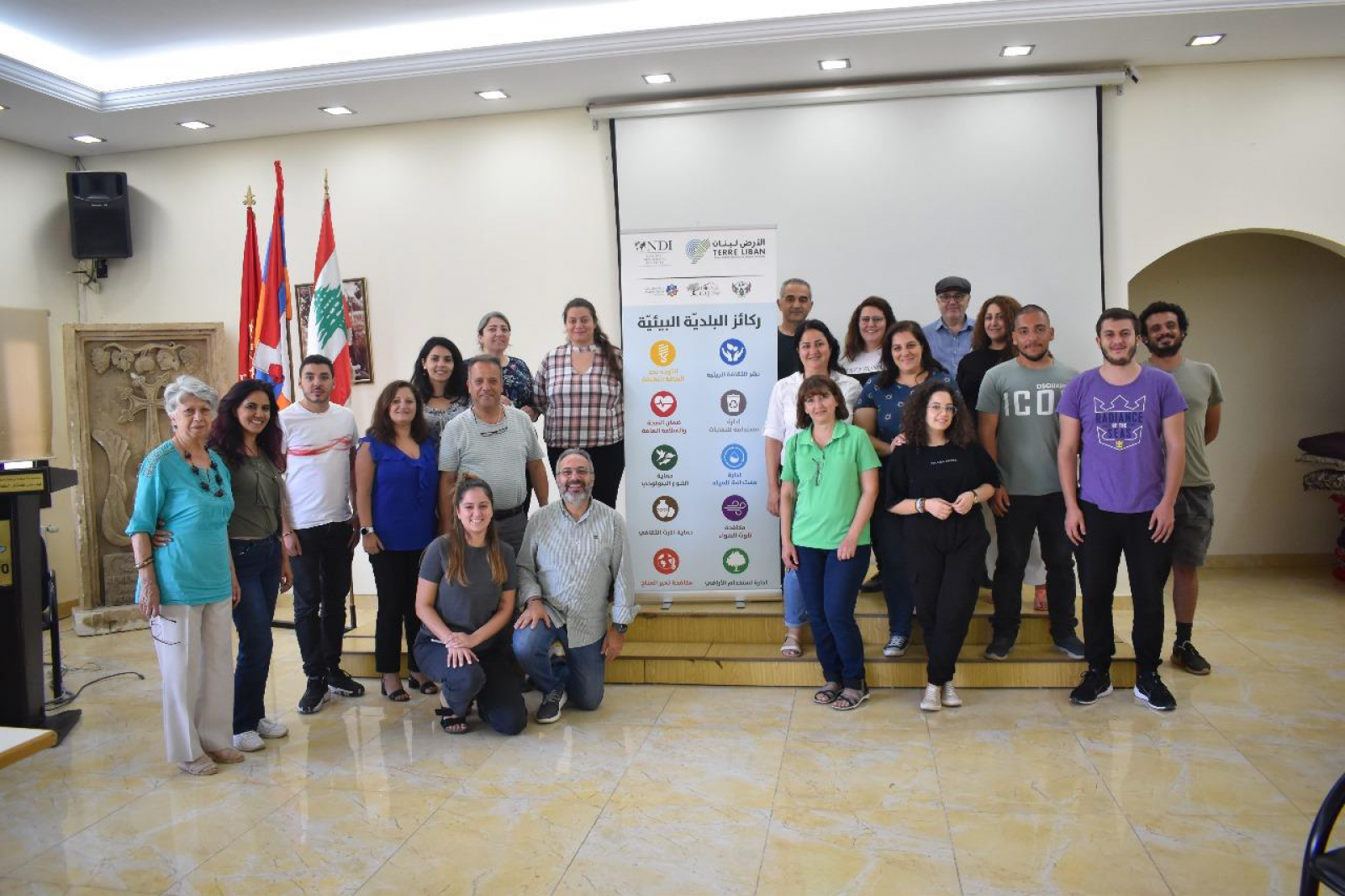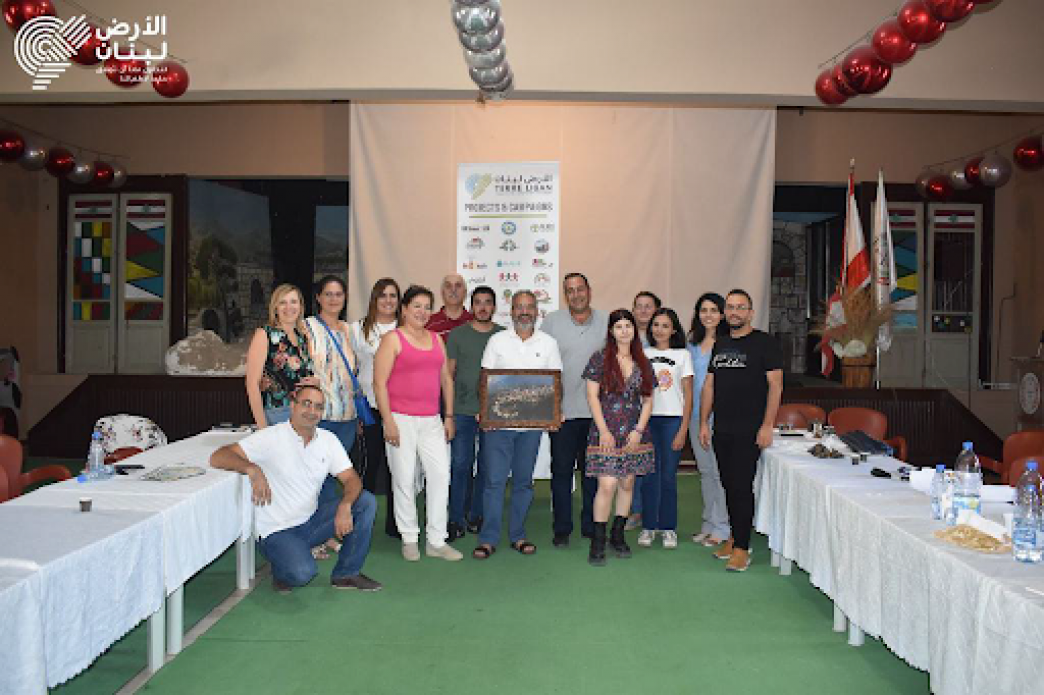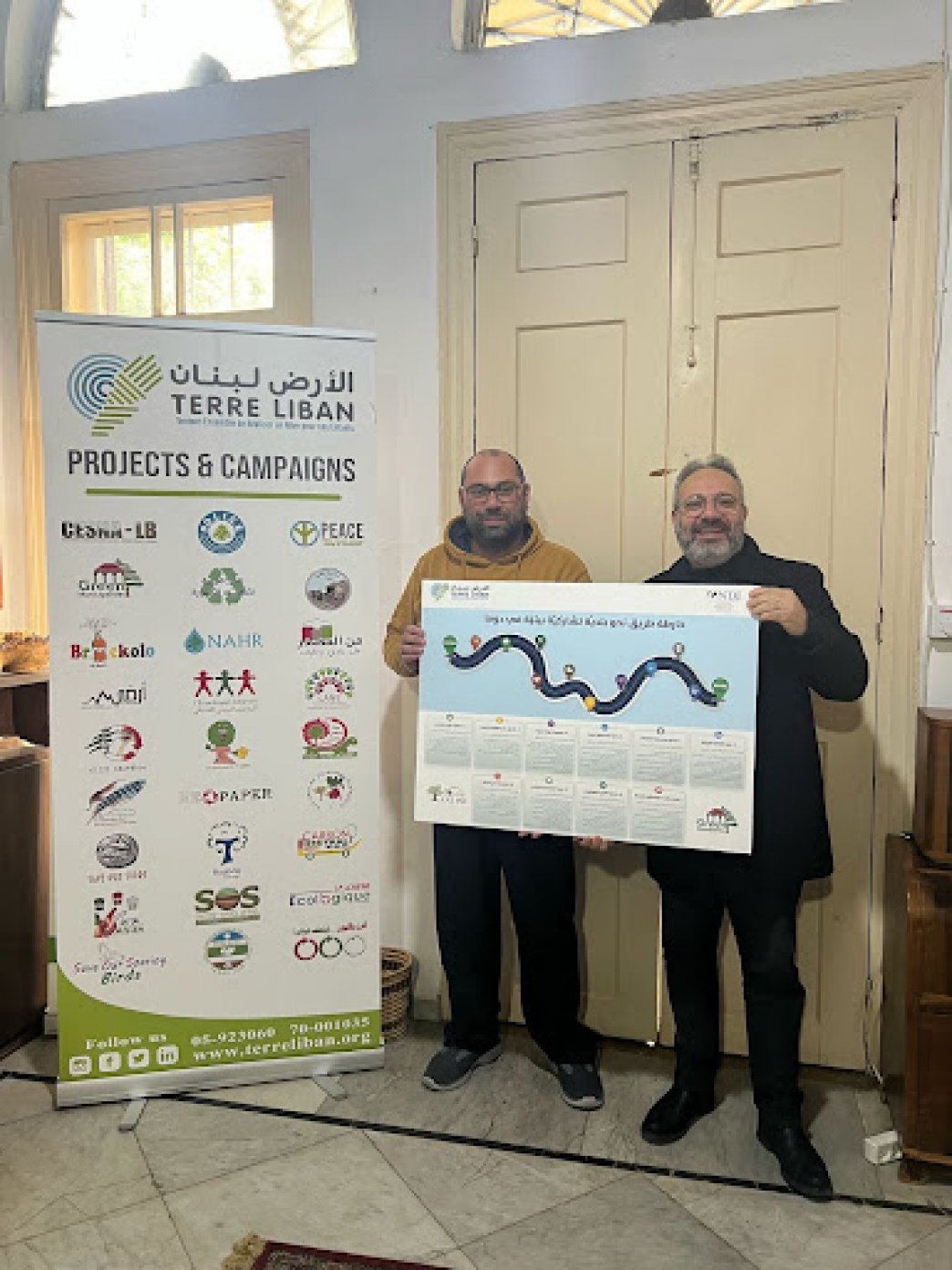
SHARE
The participation and empowerment of citizens in all their diversity are the keys to healthy and resilient democracies, and nowhere is that more apparent than in the realm of environmental sustainability. The unique climate-related challenges that face communities around the world require innovative, local solutions that address the needs of those affected, especially the marginalized communities who feel the effects of climate change most acutely. That is why the National Democratic Institute (NDI) is proud to partner with TERRE Liban, a Lebanese organization, on the “Building Environmentally Sustainable Municipalities” program, with financial support from Porticus.
This program, titled “Democratic Eco Municipalities,” makes clear the links between democracy, citizen participation, and the efficiency of local environmental protection. It spanned three villages in Lebanon—Anjar, Douma, and Majdel Selm—and combined the local knowledge and needs of citizens with the technical expertise of legal and environmental experts to create a roadmap to a sustainable future. By contextualizing the diverse needs and perspectives of different members of the community with environmental and legal technical expertise, each of these three communities were able to develop a common understanding of environmental challenges and build a cross-community action plan.
Building a Common Understanding
TERRE Liban began its initiative by meeting with community leadership and holding two days of training in each of the three municipalities. They met with community mayors to learn about the history of each village and the challenges that each community faced. Based on these conversations, TERRE Liban then hosted the training in the communities with the assistance of environmental and legal experts. Participants included elected officials from the local government (15% of participants) and a diverse group of concerned citizens, 45% of whom were women. Including women in consultations is essential, as women have been on the front lines of environmental governance and resilience in Lebanon.
The first training covered a wide variety of threats to the environment and frameworks for thinking about sustainability and green governance. The participants learned about environmental issues and biodiversity and their importance both globally and in Lebanon, and about the most pressing environmental problems that Lebanon faces. Then, the participants learned about the ten pillars of a green municipality (waste, air, energy, water, land use, eco citizenship, biodiversity, public health and security, cultural heritage, and climate change) before analyzing which problems their village faced and proposing solutions.
unnamed (1).png

The second training relied on the expertise of the legal and environmental experts. TERRE Liban brought in these specialists to discuss environmental law and the legal framework in Lebanon, green governance and advocacy, and the results of socio-economic and environmental reports that the experts had conducted in each of the municipalities. Bolstered by this information, the participants of the trainings agreed on priorities for each village based on the ten pillars of a green municipality and the most pressing needs of their community.
These trainings served to foster an understanding of environmental issues, identify priorities, and recognize collective responsibility in addressing them. By including both private citizens and elected officials in the training and equipping them with the knowledge of what they could do within their own municipalities, the training placed both power and responsibility into the community members’ hands.
The program concluded by focusing on transforming the priorities set by the community participants into an actionable six-year roadmap. To mobilize citizen support for the sustainability plans and their priorities, TERRE Liban and the environmental expert created easily accessible graphic depictions of the plans using the ten pillars of a green municipality, which were then turned into posters and training materials by a communication expert for distribution to community members. Through this process, citizens were empowered to take ownership of solving environmental challenges in their own communities—a critical facet of any sustainable environmental initiative. By involving citizens and local officials in creating solutions from the very beginning, this program ensured buy-in and commitment from these key stakeholders—necessary for any sustainable action.
Participants are already implementing the plans in their communities. Anjar developed a municipal decision to protect 30% of their land, in line with the 30x30 by 2030 goals announced at the United Nations Biodiversity Conference in 2022 (COP15). TERRE Liban signed a memorandum of understanding with both Anjar and Douma to ensure the sustainability of the project and provide ongoing technical support throughout the six-year plan. Given recent regional developments, those living in Majdel Selm are focused on the urgent need to assist citizens displaced by fighting in the south of Lebanon, but their six-year plan will be ready for them when the situation allows for it. By the end of the six-year plan, these communities will be able to look back with pride in their collective accomplishment.
Environmental sustainability may be a global challenge, but today’s sustainable solutions come from diverse local communities. NDI is honored to have supported the communities of Anjar, Douma, and Majdel Selm in their efforts to strengthen their democratic eco municipalities and build more sustainable futures.
NDI's engagement with TERRE Liban is implemented with support from Porticus.
Author: Kara Joyce, Program Associate; Gender, Women, and Democracy
Related Stories:
Pioneering Environmental Action in Poland’s Urban Centers
Defending Democracy: National Security and the Environment
Governance, Gender and the EU’s Green Agenda
###
NDI is a non-profit, non-partisan, non-governmental organization that works in partnership around the world to strengthen and safeguard democratic institutions, processes, norms and values to secure a better quality of life for all. NDI envisions a world where democracy and freedom prevail, with dignity for all.



